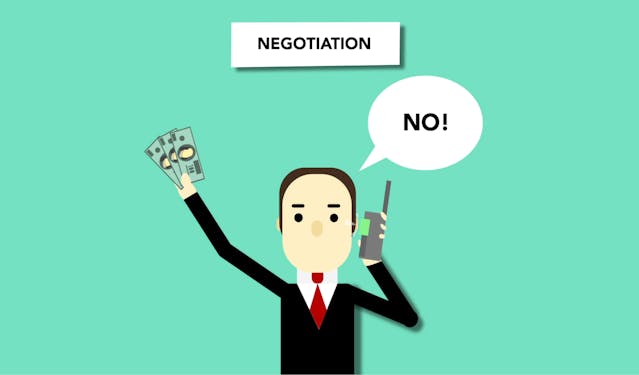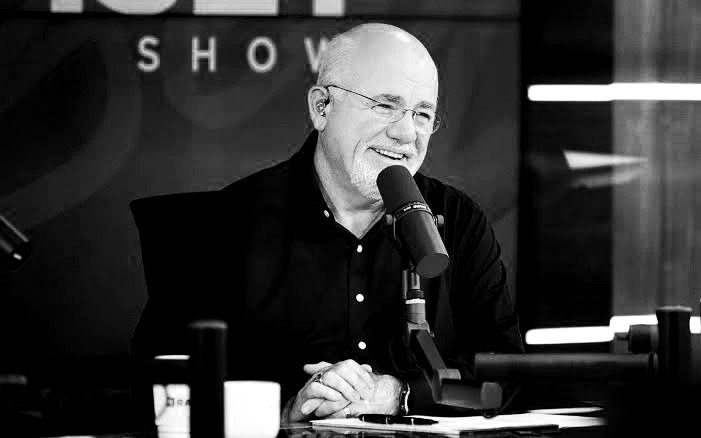By the time you turn 30, a lot about your financial future has already been shaped — either by default or by design.
For most people, your 20s are a blur of student loans, first jobs, big dreams, and learning to make ends meet. It’s also the time when your mindset around money starts to settle. You may not be earning a fortune yet, but how you handle what you have is what sets the tone for the years to come.
This article isn’t about telling you to stop buying coffee or to become obsessed with cutting costs. It’s about building financial habits that work for your goals. Habits that allow you to enjoy your life now while also building something solid for the future. The truth is: when you start early, time does the heavy lifting.
So if you’re under 30 (or just want a reset), here are ten money habits worth adopting right now.
Habit 1: Know Where Every Cent Goes — and Tell It Where to Go
Why this matters:
Most people don’t plan to be broke — they just never made a plan at all. That’s where budgeting comes in. Not as a set of rules to cage you, but as a tool to help you see clearly and spend intentionally.
The reality:
When you don’t track where your money is going, you’ll constantly feel like your income isn’t enough — even if it increases. The problem isn’t always how much you earn, but how consciously you manage it.
Here’s how to build the habit:
- Start by tracking everything
For one month, write down every naira you spend — groceries, Uber rides, airtime, snacks, subscriptions. Use a note-taking app, Excel sheet, or a free tool like Mint or Spending Tracker. You can’t control what you don’t measure. - Create a personal budget you’ll actually follow
Don’t copy someone else’s format blindly. Build a monthly plan around your reality: your income, your priorities, and your goals. A helpful model is the 50/30/20 rule:- 50% for needs (rent, bills, food)
- 30% for wants (leisure, hobbies, dining out)
- 20% for savings and debt repayment
- Make your budget flexible, not rigid
Life happens. Prices change. Goals evolve. Don’t treat your budget like a prison sentence. Instead, review and adjust it every month — or every week if you’re just getting started. - Add your goals into the plan
Budgeting isn’t just about avoiding spending. It’s about including what matters. Want to take a trip in six months? Save for it in small bits. Want to invest or start a business? Budget for it.
“Too many people spend money they haven’t earned, to buy things they don’t want, to impress people they don’t like.” – Will Rogers
The sooner you build this awareness, the better equipped you are to make money work for you, not against you.
Habit 2: Build an Emergency Fund — Before Life Happens
Why this matters:
Emergencies don’t announce themselves. And if you’ve ever had to scramble for money due to a sudden hospital visit, a phone that crashed before payday, or a job that unexpectedly let you go — you know how powerless it feels without a financial cushion.
An emergency fund is not a luxury — it’s a necessity.
Here’s what this habit looks like in practice:
- Start small, start now
You don’t need $1,000 overnight. Begin with a micro-goal: $1,000. Then aim for $5,000. Then push toward 1–3 months’ worth of basic living expenses. - Keep it in a separate account
Your emergency fund should not live in the same bank account as your daily expenses. Out of sight, out of temptation. Consider a high-yield savings account or a fixed deposit with minimal withdrawal access. - Automate your savings
Set a standing order that moves a small, fixed amount from your main account to your emergency fund every week or month. Even $200 weekly adds up. The goal is to build the habit, not wait for the “right” time. - Define what counts as an emergency
An emergency is not a holiday trip or shopping deal. It’s an unexpected event that affects your health, income, or critical assets — like your home or work tools. Be strict with this rule.
Bonus mindset tip:
Don’t wait until you’re making “big money” before building this safety net. People often think, “I’ll save when I earn more.” But financial discipline is about what you do with your income, not how large it is.
Recap so far:
- Without budgeting, your money disappears.
- Without an emergency fund, you’re financially vulnerable.
These first two habits create the foundation for every other move you’ll make — whether it’s investing, building credit, or chasing your dream career. If you build them early, you’re already ahead of most people.
Habit 3: Pay Off High-Interest Debt Early — It’s Not Just About the Amount

Why this matters:
Debt in itself isn’t evil — in fact, some types of debt (like mortgages or student loans with favorable terms) can be leveraged strategically. But high-interest debt? That’s a silent killer of your financial future.
It eats your income monthly while giving nothing back. Left unchecked, it grows into a mountain of stress and lost opportunities.
Examples of high-interest debt:
- Credit cards (especially with rollover balances)
- Payday loans
- Loan sharks or informal borrowings with outrageous interest
- “Buy now, pay later” schemes that charge late penalties
According to a 2023 report from the World Bank, over 40% of young adults in sub-Saharan Africa experience chronic debt cycles, primarily driven by short-term lending with high interest rates.
How to tackle it:
- List all your debts — without shame
Denial is not a strategy. Write them all down: amount owed, interest rate, monthly due, and creditor. Clarity is the first weapon. - Use the avalanche method
Prioritize paying off the debt with the highest interest rate first, while still making minimum payments on others. This saves you more money long-term. Alternatively, the snowball method — paying the smallest debts first — can build emotional momentum. Choose what motivates you most, but don’t stall. - Avoid just “paying the minimum”
Minimum payments are how lenders keep you in the system. Even paying a little extra monthly reduces your payoff time dramatically. - Negotiate where possible
If it’s a formal loan, ask for a restructuring or interest reduction. You’d be surprised how willing some institutions are to negotiate, especially if you’re proactive. - Don’t borrow to impress or escape
That car upgrade, the luxury phone, or impulsive spending — all on borrowed money — might give you 10 minutes of pleasure and 10 months of stress. Let that sink in.
Bottom line:
Getting rid of high-interest debt is the fastest guaranteed return on your money. Before you think of investing, clear the quicksand under your feet.
Habit 4: Start Saving for Retirement — Yes, Even If You’re 23
Why this matters:
Retirement might feel light-years away when you’re in your 20s. But the earlier you start, the less it costs you over time — and the more freedom you’ll have when you actually need it.
Let’s break it down with a basic example:
- If you save $20,000 monthly starting at age 25, and it earns just 8% interest annually, you’ll have over $1.25 million by age 60.
- Wait until you’re 35 to start? You’ll only have around $530,000 — less than half.
That’s the power of compound interest. Time is your greatest financial ally.
How to build the habit:
- Start with a small, regular contribution
You don’t need to understand every investment vehicle to begin. Just start setting aside money — $10, $20 — every month into a dedicated retirement or long-term savings fund. - Use retirement-focused accounts
If you’re in Nigeria, consider using RSA (Retirement Savings Accounts) under PENCOM or speak to a licensed pension fund administrator. If you’re self-employed, platforms like Cowrywise or Risevest offer long-term investment options with automation. - Invest in growth, not just savings
Savings accounts protect your capital, but inflation eats away at your purchasing power. For long-term goals, you need instruments that grow faster than inflation: mutual funds, index funds, or bonds are a start. - Don’t withdraw early
It’s tempting to dip into long-term savings when short-term needs arise. That’s why Habit 2 (emergency fund) is a prerequisite. Build that safety net so your retirement fund remains untouched.
Habit 5: Learn to Delay Gratification Without Feeling Deprived
Why this matters:
Most poor financial decisions happen because we’re trying to escape a feeling — boredom, pressure, comparison, frustration.
When you master the ability to pause and think — to delay a purchase until you’re certain it aligns with your priorities — you unlock the door to true financial power.
In a famous experiment, researchers found that children who could resist eating one marshmallow now in exchange for two later, tended to have better life outcomes, including higher income and better health.
The same principle applies to money. If you train your brain to delay, you give yourself options.
How to build this habit:
- Wait 24 hours before making unplanned purchases
If it’s not urgent or essential, sleep on it. Most impulse buys don’t feel that attractive the next day. - Unsubscribe from temptations
If you get emails from your favorite store every day, you’re setting yourself up to want, not need. Unfollow some influencer pages or shopping feeds if they trigger unnecessary spending. - Reward yourself intentionally
Delaying gratification doesn’t mean deprivation. Set milestones. Save for what you want. Enjoy the purchase because it was intentional — not because it was impulsive. - Train with “micro-delays”
Start small: wait 5 minutes before responding to a craving, or delay spending until you’ve reflected on your budget. These small acts rewire your self-control muscle.
Habit 6: Master the Art of Saying “No” — Especially When It Comes to MoneyWhy this matters:

Many people in their 20s fall into financial traps not because they lack income — but because they lack boundaries. Saying “yes” to every hangout, contribution request, business offer, or lending plea can drain your resources fast.
Sometimes, it’s cultural pressure. Sometimes, it’s guilt. But if you’re always broke after helping others or trying to “belong,” your financial goals will stay out of reach.
Here’s what to do:
- Budget your generosity
Set aside a small amount monthly for giving or helping others — say $20–$50. Once it’s used, that’s it. It allows you to give without sacrificing your progress. - Be firm but kind
You don’t owe everyone an explanation. A simple “I’m focusing on some personal goals right now” is often enough. Say no with calm, not apology. - Recognize emotional spending triggers
Many people spend to avoid discomfort — loneliness, pressure, fear of missing out. Awareness is your superpower. Pause before you respond emotionally with your wallet. - Don’t lend what you can’t give away
If lending money will put you in a tight spot or make you resent the borrower, don’t do it. Protect your peace and progress.
Bottom line:
Saying “no” isn’t selfish — it’s wise stewardship. Your 30s (and beyond) will be shaped by the boundaries you set today.
Habit 7: Invest in Yourself Before Anything Else
Why this matters:
The best-performing stock over your lifetime won’t be Tesla or Apple — it will be you. Skills, mindset, knowledge, and relationships compound just like money does.
Investing in yourself is the foundation for earning more, managing better, and thinking sharper.
How to do it:
- Develop high-income skills
Coding, writing, design, public speaking, marketing, digital strategy, sales — all these have the potential to make you $1,000+ per month. Focus on one and master it. - Read every day — even for 15 minutes
From financial literacy books like The Psychology of Money to mindset changers like Atomic Habits, your brain is your most powerful asset. - Take online courses
Platforms like Coursera, LinkedIn Learning, and Udemy offer courses from $10–$50 that can 10x your earning power. That’s an insane return on investment. - Find mentors and communities
Don’t walk alone. Join professional groups, attend webinars, talk to people ahead of you. One insight can shift your trajectory.
Quote to remember:
“The more you learn, the more you earn.” – Warren Buffett
Habit 8: Learn Basic Investing Without Getting Overwhelmed
Why this matters:
Most people either avoid investing out of fear, or jump in blindly and get burned. Neither is a great long-term strategy.
In your 20s, your goal is to build the habit, not to hit a home run.
Simple ways to start:
- Start with index funds or ETFs
These are baskets of stocks that mirror the overall market (like the S&P 500). Instead of guessing which stock will win, you own a piece of all of them. Platforms like Robinhood, Fidelity, or Charles Schwab allow beginners to start investing with as little as $10. - Use dollar-cost averaging
This means investing a fixed amount (e.g., $50 or $100) monthly, no matter what the market is doing. Over time, this strategy smooths out risk. - Beware of hype
Avoid “get rich quick” investments or FOMO-driven decisions (crypto pumps, shady forex schemes, or meme coins). If it sounds too good to be true — it is. - Diversify early
Don’t put all your money into one stock or one sector. Spread your investments across different industries and asset types (stocks, bonds, real estate funds). - Track your progress, but don’t obsess
Check your portfolio quarterly — not daily. You’re playing the long game.
Habit 9: Set Financial Goals with Milestones and Metrics
Why this matters:
You can’t hit a target you haven’t defined. Vague goals like “I want to be rich” or “I want to be debt-free” aren’t enough. You need a plan with numbers, timelines, and steps.
Set goals like:
- “I want to save $1,000 in an emergency fund within 6 months.”
- “I will pay off $500 of my credit card debt every month until cleared.”
- “I will increase my freelance income from $200/month to $500/month in 90 days.”
How to create SMART goals:
- Specific: What exactly do you want?
- Measurable: Can you track it with numbers?
- Achievable: Is it realistic based on your current situation?
- Relevant: Does it align with your bigger vision?
- Time-bound: What’s your deadline?
Bonus tip:
Review your goals monthly. Celebrate wins. Adjust the plan — not the dream.
Habit 10: Surround Yourself with Financially-Minded People
Why this matters:
Your environment either supports your financial growth — or sabotages it.
If you’re always around spenders, gamblers, or friends who mock your money discipline, you’ll constantly feel torn. But if you plug into communities that value budgeting, saving, and building, you’ll level up faster than you think.
Jim Rohn said it best: “You are the average of the five people you spend the most time with.”
How to build this habit:
- Curate your digital feed
Follow people and pages that talk about money intelligently: budgeting, business, financial literacy, frugal living. Unfollow noise. - Join accountability groups
Whether it’s a savings challenge, an investment club, or a budget buddy — accountability multiplies progress. - Find money conversations normal
Normalize talking about savings, investing, income goals. Money isn’t taboo — it’s a tool. Use it with purpose and honesty. - Detach from toxic money culture
It’s okay to step back from circles that encourage reckless spending, flex culture, or financial manipulation. Your future > their opinions.
Wrapping Up: What Your Future Self Will Thank You For
Turning 30 doesn’t mean you have to be perfect with money. But it does mean you should be intentional. The habits you build now — not the ones you dream about — will shape your financial freedom, security, and peace of mind for decades.
The 10 Habits at a Glance:
- Track every dollar
- Build an emergency fund
- Pay off high-interest debt
- Save for retirement early
- Practice delayed gratification
- Learn to say “No”
- Invest in yourself
- Understand basic investing
- Set financial goals
- Choose your circle wisely
It’s never too late to start. But it’s always better to start early.
- Graphic Design for Beginners: Best Tools & Tips to Start in 2026 - February 22, 2026
- How to Start a Blog in 2026 and Turn It Into a Steady Income Stream - November 10, 2025
- 2026: The Business Sectors Creating the Next Wave of Millionaires—How to Tap into - November 6, 2025








